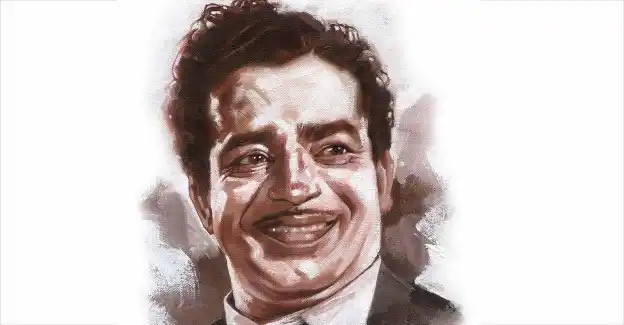Sathyan, born on November 9, 1912, as Cheruvilakathu Veetil Manuel Sathyanesan Nadar, lived a life of service long before he became a screen legend. Early in his career, he worked as a clerk and a school teacher, but when World War II broke out, he joined the British Indian Army. He rose to become a Viceroy’s Commissioned Officer, serving in challenging theatres like Manipur, Burma, and Malaya.
After his military service, Sathyan didn’t rest, he joined the Travancore State Police as a sub-inspector. During the Punnapra-Vayalar uprising, he was posted at the Alappuzha North Police Station.

His transition to cinema came relatively late: at the age of 40, he made his acting debut in Aathmasakhi (1952), after a first project that didn’t materialize.But once he started, he left an indelible mark. Known affectionately as “Sathyan Master,” he brought a subtle, controlled, and deeply realistic style to Malayalam films, a stark contrast to the melodramatic acting of his time.
In his career of just 19 years, he acted in around 150 films, from Neelakkuyil and Chemmeen to Odayil Ninnu and Yakshi, often portraying working-class heroes with emotional depth.
But his greatest performance might have been his life. For years, Sathyan battled leukaemia, yet he remained unwavering in his commitment to his craft. While filming Oru Penninte Kadha, he began coughing up blood, a sign of how serious his condition was.Rather than back down, he would get blood transfusions, return to the studio, and act as if nothing were wrong.
His last film, Anubhavangal Paalichakal, was unfinished at the time of his death. According to sources, for some scenes, a body double was used, shown only from behind, after his health deteriorated.
On June 15, 1971, Sathyan passed away at the age of 58. Despite his illness, his dedication earned him enormous respect, even in death, his contribution to Malayalam cinema was deeply felt. Thousands attended his funeral, paying homage to a man who gave everything to his art.
Sathyan’s legacy isn’t just in his films. It’s in the way he lived, with courage, humility, and steadfastness. He redefined what it means to be an actor, and his example continues to inspire generations.
